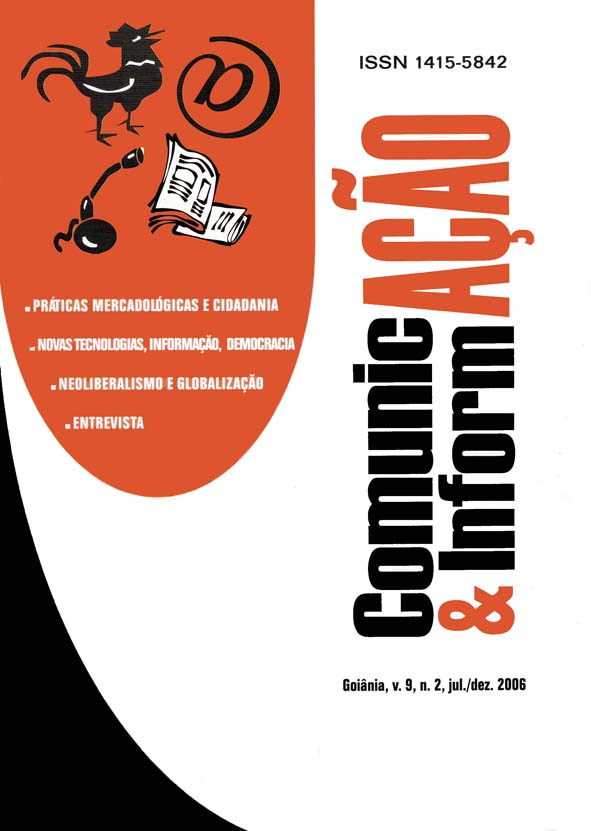Social movements on the web: uses and communication strategies
DOI:
https://doi.org/10.5216/c&i.v9i2.25251Keywords:
Web.popula r movements.CommunicationAbstract
This research intends to investigate the uses that the popular movements and not Governmental Organizations (ONGs) of Fortaleza makes of the web. We have observed that in recent years this use became frequent in Brazil. As examples we can check the page of the Radio Favela, in Belo Horizonte, and the site Viva Favela, in Rio de Janeiro, amongst other important national experiences. In Fortaleza, the Ellery Quarter had the closed Radio Mandacaru for the Anatei and meets currently with a site of presentation of the quarter and the popular movement. In the Bom Jardim quarter of Fortaleza we find two ONGs, both using sites. Our research intends to understand the supports and the used languages in the presentation of these sites, observing that these forms supports and languages represent more effective spaces of participation. After this first phase of the field research we have the interest to understand the reasons that take the popular movement to use the practical web as forms of mobilization and construction of its visibility. It is also interesting to verify the results that the communication in net brings for the actors who are involved in these movements.Downloads
Downloads
Published
How to Cite
Issue
Section
License
Os autores dos trabalhos publicados na revista Comunicação e Informação retêm os direitos autorais sem restrições e concedem à revista o direito de primeira publicação, com o trabalho simultâneo licenciado sob a Licença Creative Commons Atribuição-NãoComercial que permite o compartilhamento do trabalho para fins não comerciais com reconhecimento da autoria e o privilégio de publicação primeiramente por esta revista. Caso o texto venha a ser publicado posteriormente em outro veículo, solicita-se aos autores informar que o mesmo foi originalmente publicado como artigo na revista Perspectiva, bem como citar as referências bibliográficas completas dessa publicação.
Os direitos autorais dos artigos pertencem aos autores e o conteúdo dos artigos assinados é de responsabilidade exclusiva dos autores.
A revista se reserva o direito de efetuar, nos originais, alterações de ordem normativa, ortográfica e gramatical, com o intuito de manter o padrão culto da língua, respeitando, porém, o estilo dos autores.
A revista também se reserva o direito de traduzir o artigo, no todo ou em parte, para o inglês ou para o português, dependendo do idioma em que o artigo tenha sido escrito originalmente.



